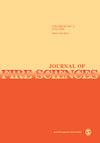Numerical study of fire resistance of stainless steel circular hollow section columns
IF 1.9
4区 工程技术
Q2 ENGINEERING, MULTIDISCIPLINARY
引用次数: 8
Abstract
Stainless steel has countless desirable characteristics for a structural material. Although initially more expensive than conventional carbon steel, stainless steel structures can be competitive due to their smaller need for fire protection material and lower life-cycle cost, thus contributing to a more sustainable construction. The most common stainless steel groups used in structural applications are the austenitic, ferritic and austenitic–ferritic (also known as Duplex grades). This work presents a numerical study on the behaviour of stainless steel circular hollow section members under axial compression at elevated temperatures, with different cross-section slenderness. The numerically obtained ultimate load-bearing capacities are compared with simplified calculation formulae from Eurocode 3 for columns under fire situation. A parametric study, considering different stainless steel grades from the aforementioned groups, cross-sectional classes and slendernesses, is here presented for different elevated temperatures. The numerical analyses were performed with the finite element programme SAFIR, with material and geometric non-linear analysis considering imperfections. Comparisons between the numerical results and the Eurocode 3 rules demonstrated that a specific design approach must be developed for stainless steel columns under fire situation.不锈钢圆形空心截面柱耐火性能的数值研究
作为一种结构材料,不锈钢具有无数令人满意的特性。虽然最初比传统的碳钢更昂贵,但不锈钢结构由于对防火材料的需求更小,生命周期成本更低,因此具有竞争力,从而有助于更可持续的建筑。在结构应用中最常用的不锈钢组是奥氏体,铁素体和奥氏体-铁素体(也称为双相牌号)。本文对不同截面长细比的不锈钢圆空心截面构件在高温下的轴压性能进行了数值研究。数值计算得到的极限承载能力与欧洲规范3中柱在火灾情况下的简化计算公式进行了比较。一个参数化的研究,考虑了不同的不锈钢等级,从上述组,横截面等级和细长度,在这里提出了不同的高温。数值分析采用SAFIR有限元程序进行,考虑了材料和几何非线性分析的缺陷。数值计算结果与欧洲规范3的比较表明,对于火灾情况下的不锈钢柱,必须制定具体的设计方法。
本文章由计算机程序翻译,如有差异,请以英文原文为准。
求助全文
约1分钟内获得全文
求助全文
来源期刊

Journal of Fire Sciences
工程技术-材料科学:综合
CiteScore
4.00
自引率
0.00%
发文量
14
审稿时长
2.5 months
期刊介绍:
The Journal of Fire Sciences is a leading journal for the reporting of significant fundamental and applied research that brings understanding of fire chemistry and fire physics to fire safety. Its content is aimed toward the prevention and mitigation of the adverse effects of fires involving combustible materials, as well as development of new tools to better address fire safety needs. The Journal of Fire Sciences covers experimental or theoretical studies of fire initiation and growth, flame retardant chemistry, fire physics relative to material behavior, fire containment, fire threat to people and the environment and fire safety engineering. This journal is a member of the Committee on Publication Ethics (COPE).
 求助内容:
求助内容: 应助结果提醒方式:
应助结果提醒方式:


